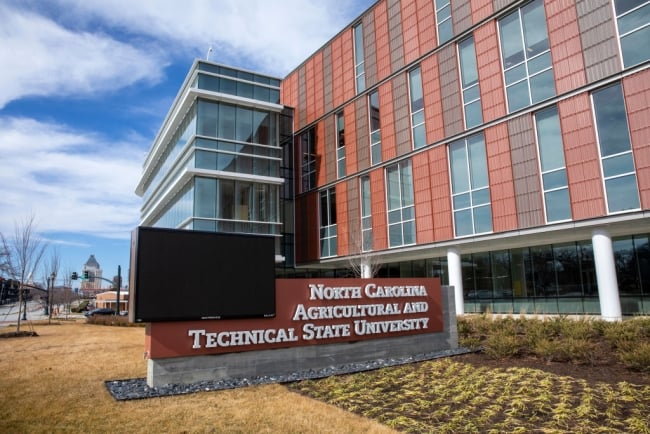By Jessica Blake
Across the board, fewer students are opting to study subjects like English, history, philosophy and the arts, according to data showing a steady decline in the number of humanities degrees conferred nationally.
The trend has prompted some liberal arts advocates to express concern about potential program cuts, particularly as the emphasis on pre-professional training and skills-based employment grows. But a new study shows that there may be a sliver of hope for the humanities in one sector of higher ed—historically Black colleges and universities.
Today HBCUs are awarding more humanities bachelor’s degrees than they did 25 years ago, according to a recent research brief published by the American Academy of Arts and Sciences. Although degree completions in these fields dropped 15 percent at HBCUs from 2014 to 2022, the decline slowed and even plateaued at some points from 2018 to 2022, with a relatively new type of program—known as general humanities or liberal studies—even growing in popularity at some institutions.
Non-HBCU institutions saw a 20 percent drop from 2014 to 2022 in the number of humanities bachelor’s degree completed, according to the report.
Robert Townsend, co-director of the Humanities Indicators project at the academy, said the role of humanities at HBCUs has been in question for some time now, given the minority serving institutions’ vocation-driven history. But when he finally took a look at the numbers, the results were rather unexpected.
“The humanities tend to be more white, to put it bluntly. They’re more likely to attract students from higher socioeconomic categories,” he said. “So it was from that perspective that one of the surprising takeaways was the fact that HBCUs now look very much like the rest of higher ed in terms of the shares of humanities degrees that are being earned.”
Of the 107 HBCUs nationally, 88 are currently awarding humanities bachelor’s degrees; four in 10 of those institutions awarded more humanities credentials in 2022 than they did in 1997.
North Carolina A&T State University saw the largest increase; the number of degrees awarded rose nearly fourfold between 1997 and 2022, from 85 to 333. Of the most recent cohort of humanities students, most were classified as liberal studies majors. This interdisciplinary program allows students to study across disciplines including English, history, philosophy, art and sociology while maintaining a concentration like African American studies or pre-law.
Jeffrey Dwayne Mack, chair of the N.C. A&T program, told researchers at AAAS that he thinks the program’s popularity at his institution may have to do with the fact that it’s available online. But he also said it could be due to the overall flexibility. Regardless of the modality, liberal studies tends to be more of a choose-your-own-adventure type program than technical STEM majors.
“Having some influence on constructing [their] concentration is very attractive to students,” he said in the report, “especially non-traditional students.”
Similar trends were seen at other institutions as well. At all HBCUs, the number of liberal studies or general humanities degrees awarded has more than tripled, rising from 347 to 1,136.
Townsend said when he first looked at N.C. A&T’s growth, he thought it must have been a data error. But now, having verified the results, he hopes the dramatic growth will serve as an indicator of success for other institutions.
Other more specific humanities majors have continued to see declines in completion, even at HBCUs. For example, the number of English degrees awarded at HBCUs has fallen by 58 percent and the number of history and philosophy degrees dropped 47 and 40 percent, respectively. It’s the more entrepreneurial institutions and departments, like N.C. A&T’s liberal studies, that seem to succeed, Townsend noted.
At a time when the buzzword is “return on investment,” one of the biggest challenges for humanities advocates is convincing prospective students that a less vocational major can lead to a successful career.
“From all the data we’ve looked at on career outcomes, humanities majors do fine in the workforce, but they do tend to take two or three years to work their way into a career,” Townsend said. “Students tend to just come away thinking that all they developed is a lot of content knowledge, rather than understanding that they actually developed really tangible skills in terms of writing and gathering information.”
He suggested that new liberal studies programs may be more attractive because they do a better job of telling students what skills they will gain and helping them articulate those skills to future employers.
“I struggle when I talk to faculty members in the traditional humanities disciplines,” Townsend said. “They feel like by talking about the skills they’re helping to cultivate, it’s giving in to the utilitarian arguments.”
But interdisciplinary programs that allow students to “move across traditional boundaries” also provide students the chance to “both study what they love, while also feeling like they’re developing some skills that they can take with them,” he said.
“I think that’s the missing piece that makes some of those subject areas more appealing,” he added.
Non-HBCUs have not seen the same success. Historically, humanities degrees earned at non-HBCUs have represented up to 14.3 percent of all college degrees, but that has dropped to 8.8 percent. And HBCU humanities degrees, which used to only represent 8.1 percent of all degrees, are now dead even, also representing 8.8 percent of all degrees awarded.
Townsend said it “wasn’t entirely clear from the data” why that would be. But he inferred that at a certain level, HBCUs have just been more willing to think outside the box.
“It was a hopeful sign that at least at one type of institution, they seem to be holding their ground as a result of some creative work,” he said.

